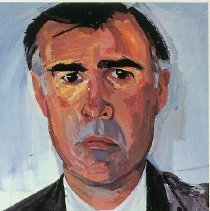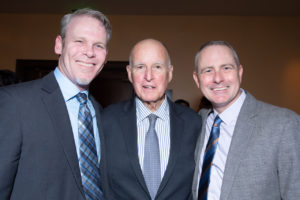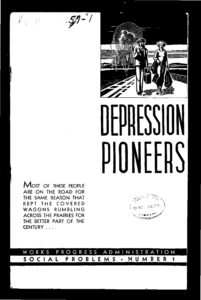Tag: primary source
Primary Sources: 19th Century British Pamphlets
Due to budget cuts, the Library ended its previous subscription to this resource. Access has been restored through a purchase of JSTOR content by the California Digital Library.
From the JSTOR site: “Throughout the 19th century, pamphlets were an important means of public debate, covering the key political, social, technological, and environmental issues of their day. 19th Century British Pamphlets, created by Research Libraries UK (RLUK), contains the most significant British pamphlets from the 19th century held in research libraries in the United Kingdom.”
More than 26,000 pamphlets from seven major UK research institutions are searchable and browsable in JSTOR.
Bristol Selected Pamphlets 1800-1899
Cowen Tracts 1603-1898
Earl Grey Pamphlets Collection 1800-1900
Foreign and Commonwealth Office Collection 1545-1900
Hume Tracts 1769-1890
Knowsley Pamphlet Collection 1792-1868
LSE Selected Pamphlets 1800-1899
Manchester Selected Pamphlets 1799-1900
Wilson Anti-Slavery Collection
I recommend reading the guides provided by the project, which describe more fully the content of the collections and how to search them. The guides also point out that the pamphlets don’t only reveal contemporary viewpoints, they contain statistics, illustrations, maps, and other evidence that would inform your research. Because pamphlets were sometimes published in response to another publication putting forward an opposing viewpoint, tracking them can provide insight into public debates.
Richard Mendelson, “A Life Lived on the Steep Part of the Learning Curve: Richard Mendelson on Wine Law and History”
by Martin Meeker
Oral History Center Interviewer (retired)
“When we drink a glass of wine, we may enjoy its aromas, consider where it is from, and ideally, care about how it was made and who created it. We might think about the winemaker, along with the vineyard and winery team, and perhaps the brand owner. We most likely don’t consider the people beyond that circle who also play a role in a wine’s existence, ensuring its authenticity, making it more meaningful for consumers, and meanwhile, protecting some of the most sacred places to grow grapes and create wine. For those who are reading this, you are about to meet such a person, one of the most exceptional people in the wine world, and someone who has more passions and layers than the most complex glass of wine you have ever enjoyed,” Linda Reiff, President and CEO of Napa Valley Vintners.

Richard Mendelson is in fact the person about whom Linda Reiff writes, and the Oral History Center is pleased to release this major life history interview with the man. Mendelson is an attorney who has played a pivotal role in creating the field of wine law through his legal practice, historical research and writing, and international leadership on the issue over the past four decades. Moreover, he is a Lecturer in Wine Law at UC Berkeley, School of Law, where he directs the Program on Wine Law and Policy. He also lectures on a variety of vineyard and wine law topics at UC Davis Graduate School of Management and has taught at the University of Aix-Marseille and the University of Bordeaux.
A graduate of Harvard University, Oxford University, and Stanford Law School, Mendelson has handled legal matters involving almost every aspect of the wine business, including liquor licensing, environmental challenges to vineyard development, grape purchase agreements, winery use permits, representation of winery clients before the California Department of Alcoholic Beverage Control and federal Alcohol & Tobacco Tax and Trade Bureau, state and federal label approvals, distributor appointments and terminations, and import-export contracts. Mendelson has a special expertise in geographical indications and has been responsible for obtaining recognition for some of the most well-known American Viticultural Areas. He assisted the California legislature with the drafting of legislation to protect the world-famous Napa Valley geographical indication. Subsequently, he successfully defended that law on behalf of the Napa Valley Vintners in the case of Bronco v. Jolly, which he argued before the California Supreme Court. Of his legal work, famed vintner Bill Harlan writes, “His legal mind, business judgment, negotiating skills, discipline, and commitment to his clients are first rate. With great integrity and knowledge and an abiding commitment to be fair and clear, he is able to gain the respect of all parties in practically any setting.”
This oral history is a globe-trotting one, with meaningful stops in England, France, India, and China, but the focus here, as with Mendelson’s work, is California’s Napa Valley. According to Harlan, Mendelson serves “as Napa Valley’s unofficial ambassador, he truly upholds our agricultural heritage and promotes our special place in the world of wine.” Linda Reiff, head of the Napa Valley Vintners, writes, “He helped make Napa Valley one of the most iconic wine regions in the world by mastering groundbreaking initiatives and complex legal challenges. He authors, refines and defends regulations to protect consumers and to ensure a more sustainable wine industry. He is a thinker and a problem solver, a deal maker, a broker.” This oral history goes a long way to explain how over the course of a few short decades “Napa Valley” came to signify and to exemplify environmental stewardship, preservation of agricultural resources, American ingenuity and achievement internationally, and, of course, quality wine.
In this interview, moreover, Mendelson discusses his family’s heritage and his own upbringing in Jacksonville, Florida; his early employment on Capitol Hill; and his attendance at Harvard University, Stanford University, and Oxford University, where he first became enamored with wine in Magdalen College’s wine cellar. Mendelson goes on to discuss his career in wine and wine law, beginning with Bouchard Aîné in Burgundy, France, and continuing in America with the establishment of American Viticultural Areas (AVAs). Other topics discussed in the interview include the research and writing of his books (From Demon to Darling, Law in America: Law and Policy, Spirit in Metal, and Appellation Napa Valley: Building and Protecting an American Treasure), California cannabis law, yoga, tai chi, Hinduism, artistic sculpture and metalwork, and wine law instruction.
Find this interview and all our oral histories from the search feature on our home page. You can search by name, keyword, and several other criteria.
About the Oral History Center
The Oral History Center of The Bancroft Library preserves voices of people from all walks of life, with varying political perspectives, national origins, and ethnic backgrounds. We are committed to open access and our oral histories and interpretive materials are available online at no cost to scholars and the public. You can find our oral histories from the search feature on our home page. Search by name, keyword, and several other criteria. Sign up for our monthly newsletter featuring think pieces, new releases, podcasts, Q&As, and everything oral history. Access the most recent articles from our home page or go straight to our blog home.
UC Berkeley Oral History Center: Jerry Brown Oral History
“Jerry Brown, I found, to be a man with a largely unwavering set of core values and principles who sometimes appears to choose contradictory ways in which to express those drives.”
— Director Martin Meeker, Oral History Center of The Bancroft Library, reflecting on his experience interviewing Jerry Brown
Inside the Jerry Brown Oral History

There are very few individuals who are what might be called a “shoe-in” for an Oral History Center life history interview. Governor Jerry Brown is one who easily qualifies. Brown’s career as an elected official began in Southern California in 1969 when he was elected to the Los Angeles Community College Board of Trustees and then continued for nearly the next fifty years through a succession of high offices; in 2018 he concluded his record fourth term as governor.
In forty hours of interviews, there are at least three main areas of study of the life of Jerry Brown, and politics much more broadly, that might be impacted by the contents of this interview from today’s vantage point: the historical trajectory of key social and political issues; the influence of creative and unique ideas upon Brown and his agenda; and what might be called the philosophy of realpolitik — of how politics really works, at least according to Brown.
The Jerry Brown oral history was made possible by funding from the State Government Oral History Program, A Project of the California Secretary of State, State Archives.
Dive Deeper
Dive deeper into the political life of Jerry Brown through the Jerry Brown oral history.
“20 Shades of Jerry Brown” UC Berkeley Podcast
“We had 20 interview sessions, and I would say that in those 20 interview sessions, we had 20 different shades of Jerry Brown,” explains Oral History Center Director Martin Meeker in UC Berkeley’s 9-minute Fiat Vox podcast, “Berkeley oral history project reveals 20 shades of Jerry Brown.” Get a taste of the oral history — hear Brown talk about the medfly invasion, Linda Ronstadt, and politics past and present. Martin Meeker provides insights into this “extraordinarily detailed, thoughtful, self-critical, broad, and sweeping oral history.”
Jerry Brown Interview History
For the historians at UC Berkeley’s Oral History Center, the question was not, “Should this interview be done?” but rather, “How might it be done at all?” Get the inside story about the making of this riveting 40-hour oral history from interviewer and Oral History Center Director Martin Meeker.
Governor Gray Davis Foreword to the Jerry Brown Oral History
When Gray Davis tried to have a hole in the governor’s rug repaired, Jerry Brown responded, “That hole will save the state at least $500 million, because legislators cannot come down and pound on my desk demanding lots of money for their pet programs while looking at a hole in my rug!” Find out why Gray Davis, the 37th Governor of the State of California, who served as chief of staff to Jerry Brown during his first two terms as governor (1975-1981), thinks Jerry Brown is one of the most consequential governors in California history.
California State Government Oral History Program
The Jerry Brown oral history is a part of the State Government Oral History Program and is the cornerstone of the re-launch of the program under California Secretary of State Alex Padilla. All of the oral history materials (recordings and transcripts) will be deposited with the California State Archives and available to users through their website as well.
Jerry Brown Oral History Transcript

Read the transcript of the 40-hour oral history. In this oral history, the following topics are discussed at length: family background and upbringing; education, religion, and friendships; the political career of Pat Brown; college, seminary, and law school; California statewide elected offices, including Governor of California; campaigns for elected office, including for US President; election reform; taxation, budgets, and deficits; law, the courts, and criminal justice reform; immigration; the environment and climate change; education reform, charter schools, and higher education; Oakland, CA; popular culture, journalism, and political campaigns; political philosophy, theories of governance, and applied politics.
KQED Forum Podcast Featuring OHC Director Martin Meeker
Politics was the family business. The Democratic party was tribal for Brown. Listen as Oral History Center Director Martin Meeker, and KQED interview partners Scott Shafer and Guy Marzorati, talk about the unique political perspective and interviewing style of Jerry Brown.

KQED Podcast: The Political Mind of Jerry Brown
From KQED: The Political Mind of Jerry Brown brings listeners the wisdom of the former Governor, Mayor, and presidential candidate. The Oral History Center’s Martin Meeker and Todd Holmes, and KQED’s Scott Shafer, interviewed Brown for more than 40 hours, covering the former governor’s life and half-century in the political game – and Brown has some lessons he’d like to share. Premiering January 8 with hour-long episodes on KQED 88.5 FM every Wednesday at 8pm through January 29.
Find this interview and all our oral histories from the search feature on our home page. You can search by name, key word, and several other criteria.
Bancroft Roundtable: Thursday, February 20 at noon in the Lewis-Latimer Room of The Faculty Club (This event has passed.)
Brown, Behind the Scenes: Contending with Governor Jerry Brown and His Oral History
In this presentation, OHC historians Martin Meeker and Todd Holmes will provide the behind-the-scenes story of a remarkable interview with a singular Californian and offer an initial perspective on how this oral history might influence our understanding of California and its political culture.
Primary Sources: ProQuest Executive Branch Documents 1933-1942
 The Library has added Part 2 (19333-1939) and Part 3 (1940-1942) to its acquisition of Executive Branch Documents, accessible through ProQuest Congressional. This resource contains documents produced by federal government departments, agencies, and commissions that were not included in the U.S. Serial Set.
The Library has added Part 2 (19333-1939) and Part 3 (1940-1942) to its acquisition of Executive Branch Documents, accessible through ProQuest Congressional. This resource contains documents produced by federal government departments, agencies, and commissions that were not included in the U.S. Serial Set.
Primary Source: 17th-18th century domestic recipe manuscripts digitzed at Wellcome Library
The Wellcome Library holds a fascinating collection of recipe manuscripts dating from the 16th to 19th centuries. One of their digitization projects has made available the 75 manuscripts dating from the 17th century, some of which span the 18th century.
All recipe books are available under a Creative Commons Attribution license; they can be freely downloaded in PDF format and reused in any situation, so long as attribution is given to Wellcome Library.
Trial: Berg Fashion Library
Trial: Japan Times Archive and the Japan Chronicle Weekly
We have trial access to the Japan Times Archive and the Japan Chronicle weekly through December 31, 2014.
These are both English resources on Japan.
Japan Times Coverage from Mar. 22, 1897 to 2013.
Japan Chronicle Coverage from 1919 to 1941.
Primary Sources: Law and Society Since the Civil War
One last resource recently required through by the Law Library is ProQuest History Vault: Law and Society Since the Civil War
This module consists of 11 collections from the Harvard Law School Library. These are the papers of Albert Levitt, Felix Frankfurter, Livingston Hall, Louis D. Brandeis, Richard H. Field, Oliver Wendell Holmes Jr., Roscoe Pound, the Sacco-Vanzetti Case, Sheldon Glueck, William H. Hastie, and Zechariah Chafee. Taken together, Frankfurter’s and Brandeis’s papers provide a behind-the-scenes view of the Supreme Court between 1919 and 1961. Oliver Wendell Holmes Jr. Papers include Holmes’s correspondence from 1861 through 1935. Holmes was a prolific and brilliant correspondent and his letters have been acknowledged as an extraordinary record of a wide-ranging and imaginative intellect. The Sacco-Vanzetti case papers offer researchers an inside view of the legal strategy in this controversial case.
Primary Sources: Women’s Studies Manuscript Collections
Another recent purchase of the Law Library was ProQuest History Vault: Women’s Studies Manuscript Collections
This valuable collection of materials from the Schlesinger Library at Radcliffe College tells the story of the fight for voting rights for women at the national, regional, and local levels. The papers of key national leaders like Julia Ward Howe, Anna Howard Shaw, and Matilda Gage are included. Equally important are the papers of lesser known state and local leaders like Catharine Waugh McCulloch of Illinois, Olympia Brown of Wisconsin, and Nellie Nugent Somerville of Mississippi. In addition to the Voting Rights papers, this module also includes records on women involved in national politics, like Mary Dewson and Jeannette B. Rankin.
Primary Sources: NAACP Papers: Education, Voting, Housing, Employment
Another purchase of the Law Library gives us access to the NAACP Papers on Education, Voting, Housing, Employment
The Education files in this collection document the NAACP’s systematic assault on segregated education that culminated in Brown v. Board of Education in 1954 and subsequent efforts to implement the Brown decision. The 1916–1950 files in this collection document the NAACP’s campaign against the “white primary,” discriminatory registration practices, and the “grandfather clause.” Files from 1956–1965 chronicle the NAACP’s efforts to capitalize on the 1957 Civil Rights Act and the much stronger Voting Rights Act of 1965. This collection also documents the NAACP’s wide-ranging campaign regarding equal employment opportunities. The armed forces portion is an exceptionally rich documentary source on African Americans in the armed forces between 1918 and the early 1950s and includes the complete extant files of the NAACP’s Department of Veterans Affairs.


